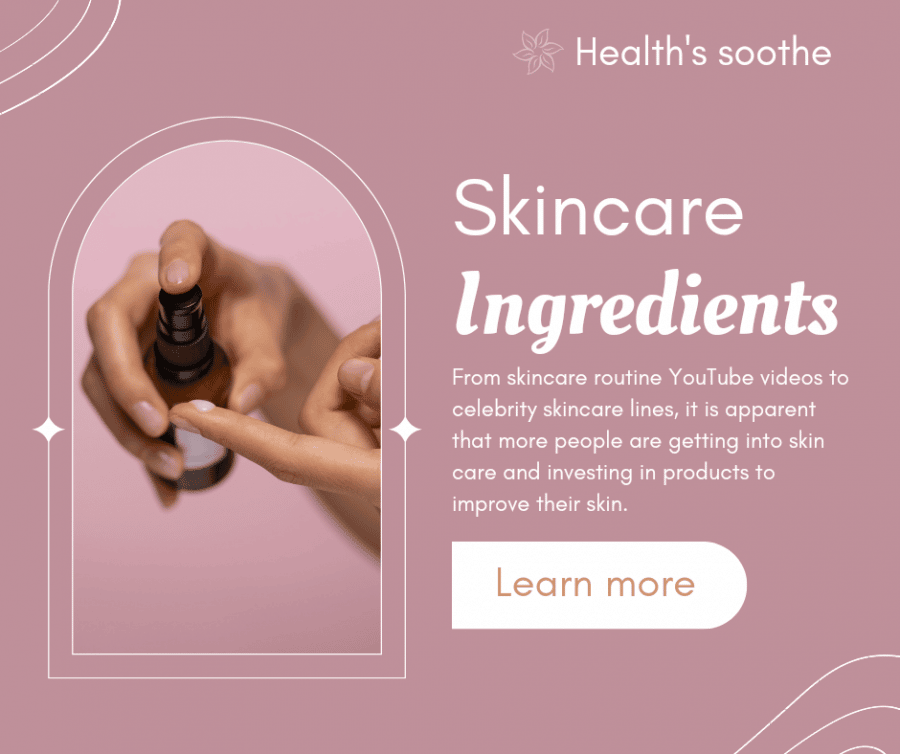From skincare routine YouTube videos to celebrity skincare lines, it is apparent that more people are getting into skin care and investing in products to improve their skin. In fact, sales of skincare products grew by 13% last year in the United States, while makeup grew by only 1% in the same period. Many people are into skin care because not only does it improves one’s appearance, but it also contributes to one’s overall health and wellness.
There have been many skincare trends in the past few years, and you may already have incorporated them to build your skincare routine. But nowadays, the buzz is all about certain ingredients, and consumers are now aware that that the right ingredients and formulations can do much to improve one's skin and reduce or prevent certain skin issues. To level up your skincare routine, these are the top ingredients that you should be on the look out for in your products.
Japanese Indigo for Anti-inflammation
Some of the most effective skincare products come from the dermatologist office since they're formulated to target specific skincare concerns. If you have certain skin conditions that don't respond to over-the-counter medication or commercially available products, then getting your products from a licensed professional in your area is recommended so you can easily schedule treatments and buy the products that you need. For instance, if you live in Texas, you should check out dermatology services and clinics in Texas and book an appointment to get the scientifically supported care. You should also ask your dermatologist if you can supplement your treatments with products that contain herbal ingredients, such as Japanese Indigo.
Japanese Indigo is a plant extract that has long been used in traditional herbal remedies because of its anti-inflammatory and antibacterial properties. This ingredient is especially good for skin conditions such as eczema and rosacea. It has tryptanthrin, which is a nitrogen-rich compound that helps flush away toxins and irritants, and indirubin, which is a dynamic isometric compound that supports skin’s natural barrier function. More and more skincare brands are including this ingredient in their products.
Zinc Oxide for Skin Protection
Many skin problems are caused by the sun or UV rays, and researchers have found that zinc has natural sun-protection benefits. Zinc oxide is a white powdery compound obtained from oxidizing zinc. It can improve skin regeneration, control excess oil, and helps prevent bacterial infections. Different products use different percentages of zinc oxide, which is why the effect varies, so the more zinc oxide is on your skin, the longer it is protected. It is proven to be a safe ingredient since it’s already been used in many cosmetic products. However, it has become a particularly important one in skincare products. You can check out the Juice Beauty Green Apple Brightening Moisturiser, CeraVe’s AM Facial Moisturizing Lotion with Sunscreen, and EltaMD UV Clear Broad Spectrum SPF 46.
Ceramides for Skin Hydration
As you may already know, moisturizing is very important when it comes to skincare. Moisturizing makes the skin look plump and healthy, thus the rise of ceramides’ popularity. Ceramides are a type of fat that the skin naturally produces, which help maintain the skin's moisture barrier, keeping skin hydrated and preventing dryness. According to dermatologists, when there is a deficiency of ceramides in the skin, it can lead to dryness, scaling, and irritation. Using skincare products with ceramides will prevent these problems. You can try Dr. Jart+ Ceramidin Cream, Glow Recipe Avocado Ceramide Recovery Serum, and Eau Thermale Avène TriXéra Nutrition Nutri-Fluid Balm.
Skincare is now all about the active ingredients you put on your skin. Improve your skincare routine and consider using products that have the above ingredients to achieve healthy, glowing, and younger-looking skin.



